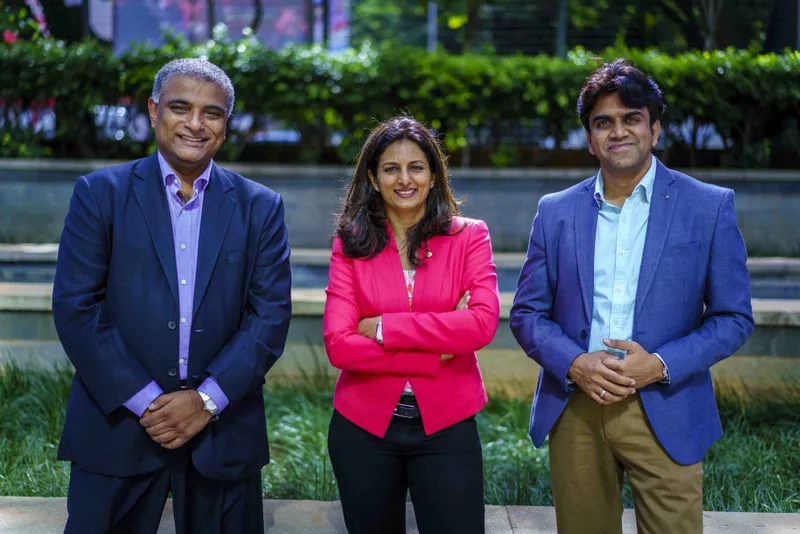How Brigade aims to give real estate a technological makeover with its accelerator programme
Today, when technology has revolutionised the way businesses are run and managed, real estate seems to be caught in a time warp, with innovation having eluded it for the most part.

Nirupa Shankar, Director of Brigade Hospitality, says that while there has been some adoption of innovation and technology in the B2C side of real estate, the B2B side has hardly seen any technology advancement. Besides, there’s nothing happening on the technology side in real estate construction as well. She adds,
“To keep pace with the ever-changing needs of the business, it is imperative to accelerate the pace of adoption of innovation and disruptive technologies in the industry.”
About a year ago, while on maternity leave, Nirupa got thinking about the lack of technological innovation in real estate. During this time, she met over 200 startups to learn about the various technology innovations available in the ecosystem and how she could use them in her company.
She came across many solutions, but they all needed some tweaking to fit the needs of the business. She realised that it would be a tall order to ask so many startups to tweak their innovations and make them market-ready. That’s when she decided to initiate an accelerator programme for startups engaged in developing B2B technology for the real estate sector, with her group becoming its pilot customer too.
In October 2016, Nirupa launched REAP (real estate accelerator programme). She says,
“Our goal is to help innovators utilise technology to create sustainable and scalable business in the real estate industry. This programme helps young companies scale in size and market their product/service in a more effective manner.”
Besides Nirupa, John Kuruvilla, Chief Mentor, and Apul Nahata, Mentor-in-Residence, are the two other people steering the accelerator programme.
The four-month interactive programme helps startups by way of mentorship, access to customers, investments and work space, and makes them ready for the market. Besides, the key pillars of engagement with young companies are product development, technology roadmap, people strategy, go-to-market strategy, marketing, branding, PR strategy, and investment readiness.
The programme mentors startups whose products or services can be used in the real estate industry across various segments, be it residential, office, retail, and hospitality.
The technology in focus are Internet of Things (IoT), nanotechnology, cleantech and renewables, augmented reality, virtual reality and logistics.
Selection criteria
According to the platform, the programme structure has been created through discussions with startups, industry leaders, and corporates.
For startups to qualify for the programme, they must have minimum two promoters with impeccable credentials with angel funding/seed investment. Besides, to be eligible, startups must show customer traction, a revenue stream, and a strong technology play.
Chosen one
According to Nirupa, the accelerator programme attracted 126 applications, of which only five were chosen for the four-month programme — QwikSpec, PParkE, SnapTrude, AirZaar, and Constapark.
QwikSpec is an end-to-end jobsite management platform for the construction industry.
The other platform PParkE offers a sensor-based smart parking solution that leverages IoT, data analytics, and the consumer app to help manage urban mobility.
SnapTrude converts hand-drawn sketches to 3D models in seconds, thereby providing automated and rapid visualisation for real estate.
AirZaar is an image processing and analytics company. It enhances the visual intelligence using drone technology to map land, offering multiple solutions across a spectrum of industries – mining and infrastructure.
Constapark offers solutions for optimising space for effective parking management by creating a city-level valet business targeting restaurants and customers.
REAP also takes equity in the startups chosen for the accelerator programme.
“We didn’t want to erode the value of the programme by offering it for free. Our equity in startups varies between two to five percent,” says Nirupa, adding that she is planning to double the number of startups selected for the accelerator programme from the next session.
Real estate, a growing market
A report by the Indian Brand Equity Foundation (IBEF) says that the Indian real estate market is expected to touch $180 billion by 2020. The housing sector alone contributes five to six percent to the country's GDP. Retail, hospitality, and commercial real estate are also growing significantly, providing the much-needed infrastructure for India's growing needs.
According to Nirupa, there are many real estate startups which are offering solutions in the B2C category. But, there’s are very few startups in the B2B category; for real estate developers, there’s none.
She adds that REAP will bring out many such startups which can offer technological solutions to developers and help them become a part of the technology revolution.







